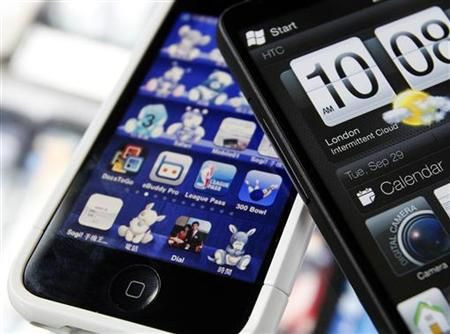Apple Files Second Patent Complaint Against HTC

Apple Inc. filed a second complaint against Taiwanese smartphone manufacturer HTC with the U.S. International Trade Commission, or ITC.
In the complaint file on July 8, Apple is requesting that the commission conducts an investigation under Section 337 of the Tariff Act of 1930, regarding certain portable electronic devices and related software, according to a notice on the ITC website.
Section 337 of the Tariff Act of 1930 prohibits unfair import competition, which may threaten a U.S. industry, preventing its establishment or trade in the U.S. It also prevents the importation of things that infringe on U.S. patents and trademarks.
The U.S. International Trade Commission can issue cease and desist or exclusion orders to those found in violation.
But HTC denies all Apple's claims.
Grace Lei, general counsel of HTC, in a statement sent through its public relations firm, Waggener Edstrom, told PC World that: HTC is dismayed that Apple has resorted to competition in the courts rather than the market place.
The two smartphone giants have been fighting over patents since last year.
Apple announced last March that it sued HTC for patent infringement, alleging last year that the Taiwanese company infringed on 20 Apple patents related to the iPhone's user interface, underlying architecture and hardware.
This lawsuit was filed concurrently with the ITC and in U.S. District Court in Delaware, according to an Apple release.
We can sit by and watch competitors steal our patented inventions, or we can do something about it. We've decided to do something about it, Apple's Chief Executive Officer Steve Jobs said last year. We think competition is healthy, but competitors should create their own original technology, not steal ours.
Apple brought the iPhone in 2007 and has a App Store with more 150,000 mobile applications in more than 90 countries. It has sold millions of iPhone worldwide.
In defense, HTC responded with legal action in May 2010, also filing a complaint with the ITC, requesting a stop to the importation and sale of iPhone, iPad and iPod in the U.S.
Jason Mackenzie, vice president of North America, HTC Corporation, has said the company took the action against Apple to protect its intellectual property, industry partners, and customers who use HTC phones.
As the innovator of the original Windows Mobile PocketPC Phone Edition in 2002 and the first Android smartphone in 2008, HTC believes the industry should be driven by healthy competition and innovation that offer consumers the best, most accessible mobile experiences possible, Mackenzie has said.
© Copyright IBTimes 2024. All rights reserved.




















